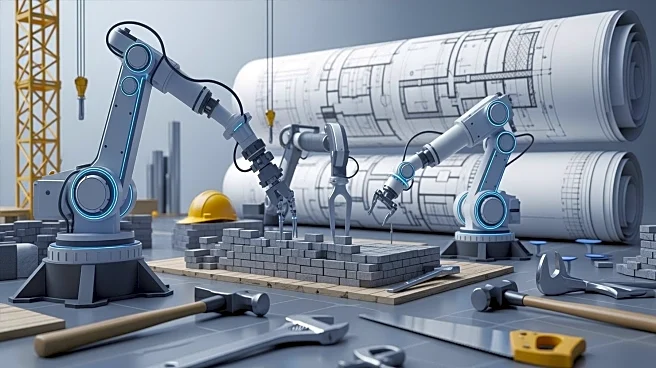What's Happening?
The construction industry is experiencing a slowdown in skills development, with a decrease in apprenticeship starts in construction and the built environment. Despite this, merger and acquisition activity
is expected to grow, particularly in logistics hubs, data centers, and regeneration schemes. Artificial intelligence is increasingly being adopted in the sector, with communications being the most common application. Less than half of construction and infrastructure businesses have reviewed their insurance policies to mitigate risks related to the Building Safety Act.
Why It's Important?
The slowdown in skills development could impact the construction industry's ability to meet future demands, potentially leading to increased strain on supply chains. The growth in M&A activity suggests a shift in investment focus, which could lead to increased efficiency and innovation in targeted areas. The adoption of AI in construction could revolutionize processes, improving safety and efficiency. However, the lack of insurance policy reviews could leave businesses vulnerable to regulatory risks, affecting their financial stability.
What's Next?
As construction activity ramps up, businesses may face increased pressure to address supply chain challenges and rising costs. The industry might see further integration of AI technologies to enhance operational efficiency and safety. Companies may need to prioritize insurance policy reviews to mitigate potential risks associated with the Building Safety Act. Stakeholders will likely continue to monitor the impact of M&A activity on the sector's growth and innovation.
Beyond the Headlines
The integration of AI in construction could lead to ethical considerations regarding job displacement and data privacy. The focus on M&A activity might drive long-term shifts in industry dynamics, influencing market competition and investment strategies. The skills slowdown highlights the need for enhanced training programs to ensure a skilled workforce capable of adapting to technological advancements.












